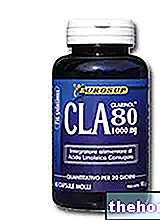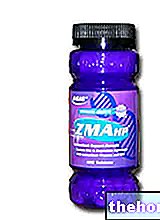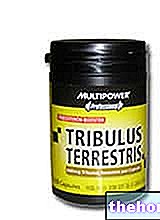Magnesium orotate derives from the salification of magnesium with orotic acid, operated to increase the bioavailability of the mineral. The bond that is formed between magnesium and orotic acid is particularly stable; consequently, the compound is poorly soluble in water and almost immune to the digestive action of gastric acids and intestinal enzymes. Consequently, the supplementation of magnesium orotate does not carry out the laxative-osmotic action typically related to the use of magnesium salts easily dissociable (such as magnesium chloride). At the same time, the binding of the mineral to a compound of organic nature is considered favorable in terms of better bioavailability, like other organic salts such as magnesium citrate, magnesium gluconate, magnesium taurinate and magnesium aspartate. Moreover, with reference to these compounds, some studies indicate minimal differences with respect to the bioavailability of inorganic forms such as magnesium chloride, which has shown a rate of urinary excretion comparable to that of the more popular (and expensive) organic salts.

It is therefore a particularly expensive salt, to the point that many users prefer to resort to cheaper products, even if - at least in theory - less bioavailable.
In some commercial products examined during the writing of this article, magnesium orotate is found alongside other less expensive salts, in order to contain the final price of the supplement. In other cases the mischief is to include in the formulation orotic acid separately. cheap magnesium salts. In any case it is good to reiterate it:
There are insufficient scientific data to attribute greater bioavailability to magnesium orotate than other organic salts and magnesium chloride.
The specific supplementation of magnesium orotate has been studied in a clinical setting especially in the field of cardiovascular diseases, thanks to the possible benefits of orotic acid.
Orotic acid
Orotic acid was originally awarded the name vitamin B13, but is no longer considered as such. In any case, orotic acid constitutes an intermediate stage in the biosynthesis of pyrimidine necessary for the synthesis of DNA and RNA. The increased availability of pyrimidine precursors for the repair of damaged tissues and for the synthesis of enzymes with antioxidant activity, could explain the still timid evidences that attribute to orotic acid a certain usefulness in case of ischemic heart disease and myocardial infarction, to limit hypoxic damage and increase cardiac efficiency
Food sources of orotic acid reside mainly in the milk of ruminants; levels of 20-100 mg / l are found in cow's milk, while levels are slightly higher in goat's and sheep's milk.
The orotic acid associated with magnesium would be useful to limit the loss of the cation through the urine, prolonging its half-life.
SAFETY OF OROTIC ACID: EFSA, the European authority that evaluates the safety of food, has concluded that the use of orotate as a source of various minerals and choline added for nutritional purposes to food supplements constitutes - at levels d "proposed use (1.8 - 6206 mg / day) - reason for safety concern, in consideration of the effect emerged in animal experiments according to which orotic acid favors the formation of tumors initiated by various known carcinogenic substances.
Bibliography:
Magnes Res. 2001 Dec; 14: 257-62.
Bioavailability of US commercial magnesium preparations.
Firoz M, Graber M.
Vestn Ross Akad Med Nauk. 2010;: 29-37.
Comparative study of magnesium salts bioavailability in rats fed a magnesium-deficient diet].
Spasov AA, Petrov VI, Iezhitsa IN, Kravchenko MS, Kharitonova MV, Ozerov AA.
Magnes Res. 2005 Dec; 18: 215-23.
Study of magnesium bioavailability from ten organic and inorganic Mg salts in Mg-depleted rats using a stable isotope approach.
Coudray C, Rambeau M, Feillet-Coudray C, Gueux E, Tressol JC, Mazur A, Rayssiguier Y.
Rom J Intern Med. 2004; 42: 491-501.
Magnesium orotate - experimental and clinical evidence.
Classen HG.
Int J Cardiol. 2009 Jan 9; 131: 293-5.
Magnesium orotate in severe congestive heart failure (MACH).
Stepura OB, Martynow AI.
Rom J Intern Med. 1999 Jan-Mar; 37: 91-7.
Magnesium orotate in myocardial and neuronal protection.
Zeana C.
EFSA (European Food Safety Authority)
Salts of orotic acid as sources of orotic acid and various minerals added for nutritional purposes to food supplements
















.jpg)











